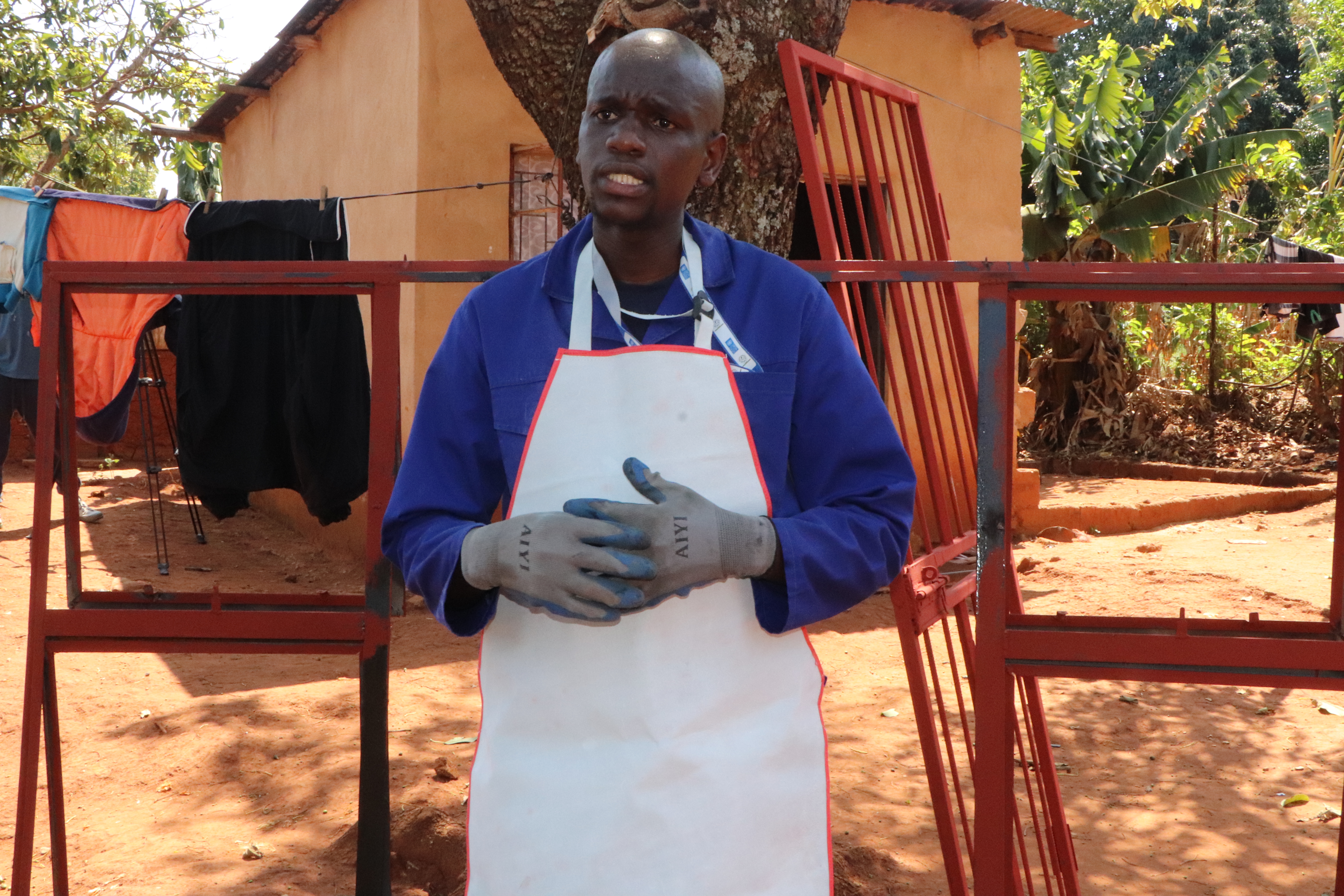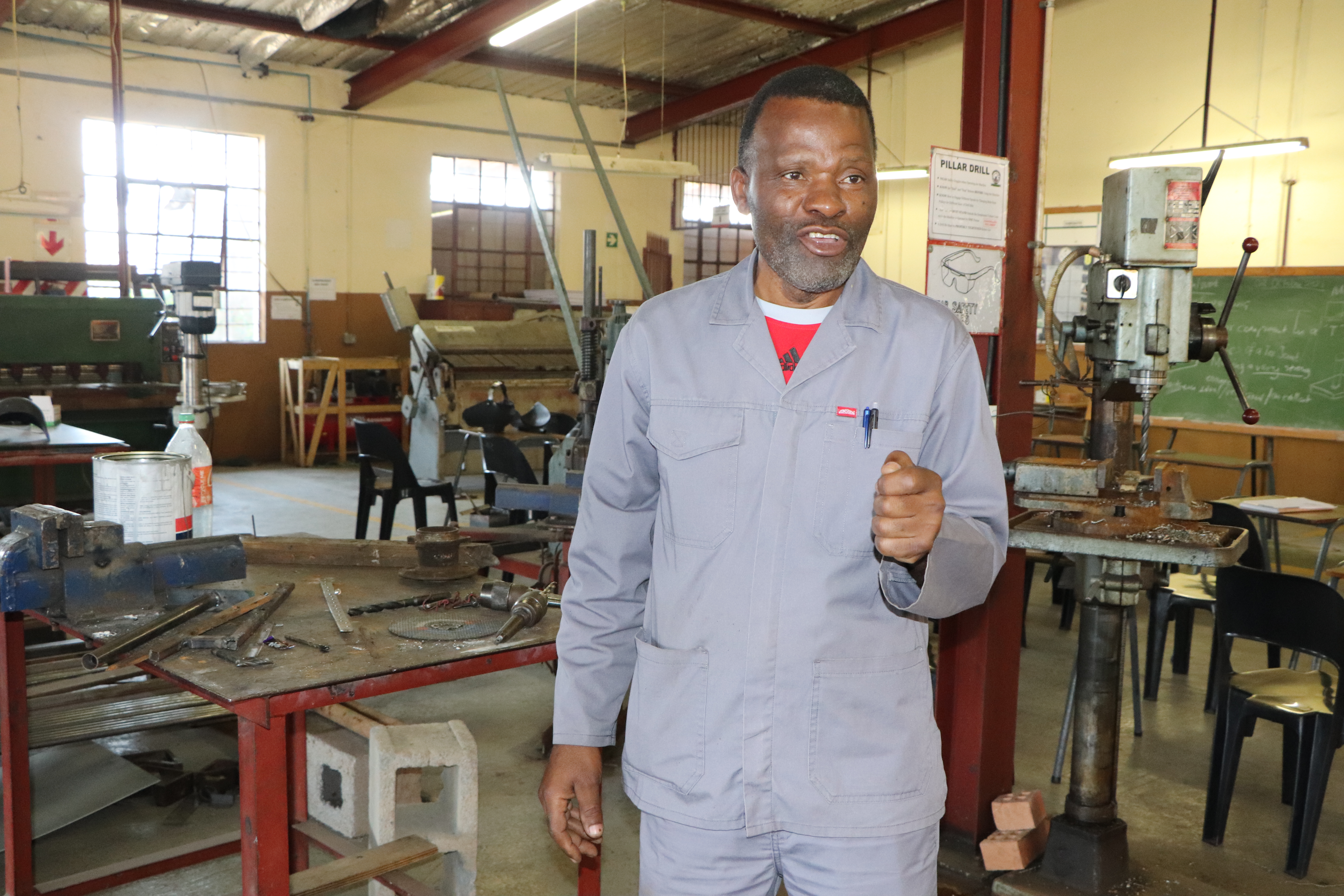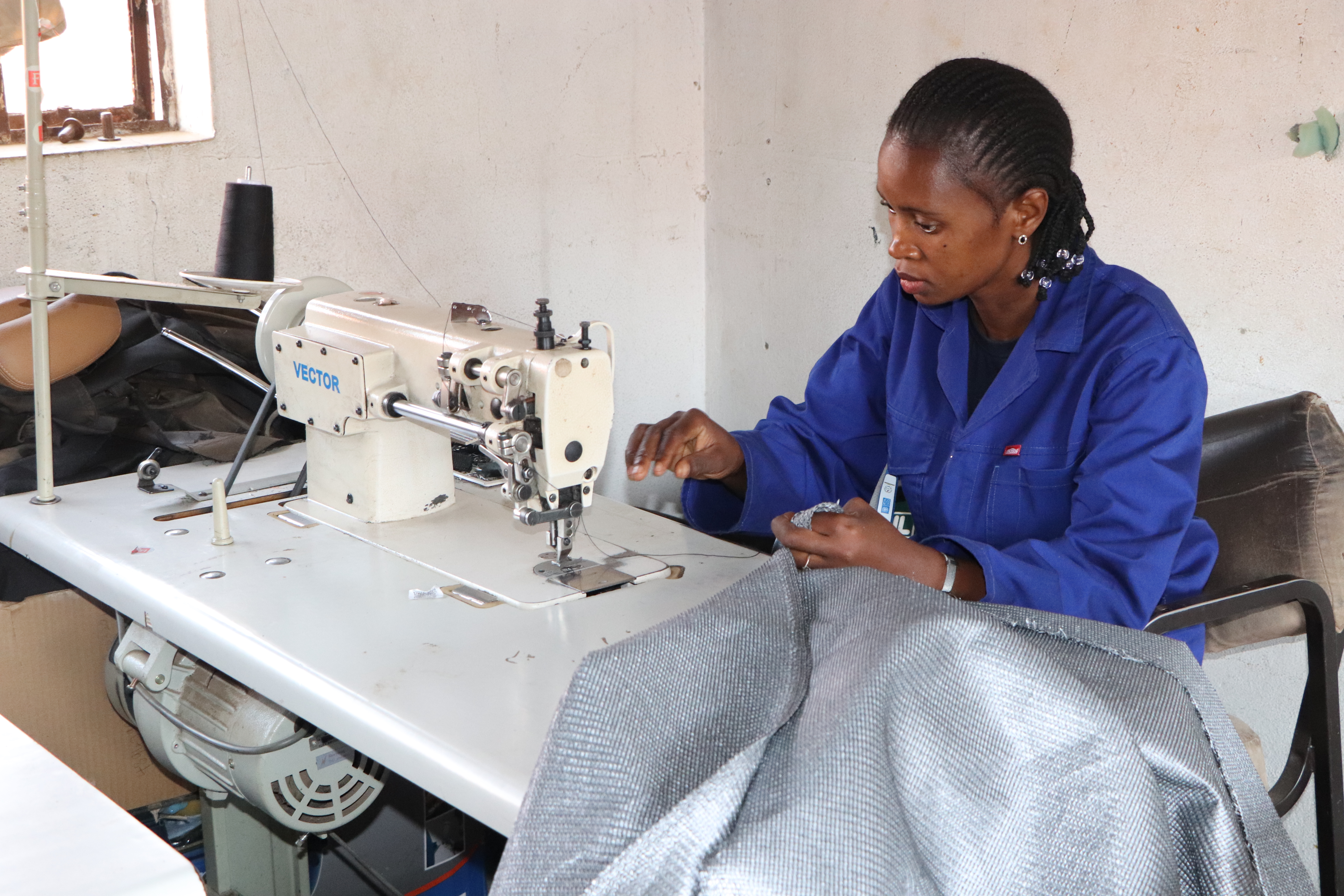Youth programme revives lost dreams
November 19, 2023

Phinda Nyambose established a workshop at his backyard following his graduation with a Certificate in Metalwork under EYEP.
He had a big dream. To own a shuttle service company that will bring tourists from other Southern African countries to Eswatini. Phinda Nyambose (34) had all his ducks in a row – he went on to acquire an Associate Degree in International Tourism from the Limkokwing University of Creative Technology. Afterwards, he started searching for a job at tourism establishments to save money to buy his first shuttle bus while gaining experience and networking with tourists.
Despite his grand plan, his dream started fading away when he could not secure a job after two years of searching following his graduation in 2019. On 14 March 2020, Eswatini recorded its first COVID-19 case, leading to the government implementing a partial shutdown that negatively impacted the economy. The tourism sector was not spared as some establishments scaled down operations or closed. According to the Labour Commissioner under the Ministry of Labour and Social Security, more than 30,000 people lost their jobs between March 2020 and December 2021 due to COVID-19. This is an unhelpful situation for a young person struggling to enter the job market.
"My job-search journey has been fraught with frustration, and it was devastating to be in a position where I couldn't provide for my family," said the married father of one boy. He became part of the 58% of youth between 18 and 35 who are unemployed. Each year, tertiary institutions produce 4,000 graduates, and many do not get jobs or any sources of livelihood.
For almost four years after graduating, Nyambose remained unemployed. The tables turned after browsing through Ezulwini Municipality's Facebook page sometime in May 2023 when he came across a call for applications for youth with a minimum qualification of Grade 7 interested in artisanal skills training. The call was issued under the Eswatini Youth Empowerment Programme (EYEP), which UNDP developed in partnership with stakeholders from the government, private sector, academia and civil society organizations.
The programme has two components: Graduate Placement and Artisanal Skills Training. EYEP partnered with municipalities in the four regions to implement the Artisanal Skills Training – Ezulwini, Mankayane, Nhlangano and Siteki – to train the out-of-school youth in sewing, upholstery, plumbing, building and construction, electrical installation, and metalwork.
Although he had a tertiary qualification, Nyambose applied and was among the 90 out of 350 applicants selected. Half of the selected participants were women. He was among the 15 metalwork trainees. EYEP partnered with the Manzini Industrial Training Centre (MITC) to conduct the training in the six courses.
"I saw another opportunity to rekindle my dream of being a businessman," he said, adding: "I chose metalwork because its products, such as burglar-proof windows and doors, are marketable in my community."

MITC metal work trainer, Aaron Dlamini stresses a point.
He seems to be on track. Within a month of completing his three-month training, in August, he secured a job renovating a home in one of the capital city's suburbs and earned himself E50 000 (USD2600). While he said he was excited to handle so much money for the first time, his satisfaction came from the joy on his assistant's face, whom he recruited from his class, when he handed him his pay cheque.
Since then, his vision has grown bigger. He wants to establish a steel fabrication company to hire some of the unemployed youth in his area. He is starting small, with a workshop in his family backyard, after receiving essential tools from UNDP as part of a starter pack that the artisans received upon graduating in September.
His dream is not far-fetched, said Aaron Dlamini, his trainer-cum-mentor at MITC, who testified that most artisans within Eswatini's industrial capital, Matsapha, and commercial capital, Manzini, are products of MITC.
"Metalwork creates many products, including mobile kitchens, gates, tables, burglar windows and doors, so the skill is in demand," he said.
Dlamini said that although Nyambose decided to go straight into business after training, some participants are undergoing a six-month internship programme at various institutions sourced through EYEP's partnership with the Construction Industry Council.

Qondile Masango has taken up a six-month internship after graduating to upgrade her skills.
Qondile Masango (30) is one of the EYEP upholstery artisans who interned after training to build more skills and gain experience. "I also wanted to understand the business side of things and gain confidence to establish my business," she said.
Through EYEP, the mother of three who left school at Form II because of a lack of funds, this opportunity will propel her to see her dream of becoming a businesswoman come true. It appears the programme is reviving lost dreams for the youth as Masango and Nyambose demonstrate that young people can create jobs with support from development programmes like EYEP.

 Locations
Locations